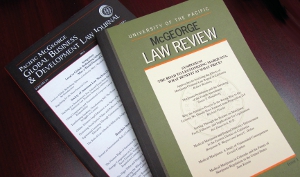Taxation of Gamblers: The House Always Wins
Document Type
Article
Publication Date
2018
Abstract
Gambling is everywhere. Whether it takes place in a casino, on the internet, or even on a cell phone, there is no shortage of venues for the avid gambler. With the rapid expansion and geographical spread of gambling activities in the United States and abroad, gamblers must understand the tax consequences of their gaming. For the professional, expenses incurred in his or her occupation are deductible but, like losses from wagering transactions, are limited to wagering gains. Recreational gamblers can also deduct wagering losses to the extent of gains, but expenses incurred in pursuit of their pastime (or compulsion) are nondeductible personal expenses. Explored in this Article are such topics as the computation and characterization of wagering gains, the treatment of cancellation of gambling indebtedness, the deductibility and substantiation of wagering losses, the classification and taxation of professional and amateur gamblers, the use of other tax entities to maximize the wagering loss deduction, and the deductibility of the cost of charity lotteries and raffles. This survey of tax laws and procedures as they relate to gamblers is designed to inform such risk takers of the tax consequences of their wagering activities and to encourage both professional and casual gamblers to keep detailed, contemporaneous records of their wins and losses. If a gambler is unlucky, the Internal Revenue Service will reconstruct gambling income, disallow wagering losses, and—if the gambler is very unlucky—impose a multitude of tax penalties.
Publication Title
OKLA. L.J.
Volume
70
First Page
553
Recommended Citation
Christine Manolakas, Taxation of Gamblers: The House Always Wins, 70 OKLA. L.J. 553 (2018).



